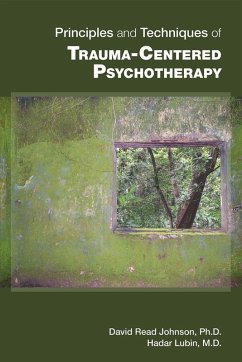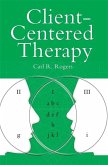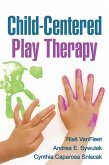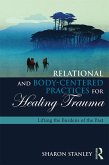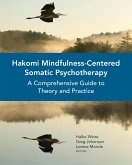Principles and Techniques of Trauma-Centered Psychotherapy integrates cognitive-behavioral, psychodynamic, and humanistic methods of trauma treatment into a psychotherapeutic context. Rather than presenting a unique form of intervention or technique, the authors present methods that have been used successfully, some of which are supported by evidence-based research and some by broad clinical experience. This is not a general text, then, but one focused on building competence and confidence in trauma-centered interventions, providing methods that should be readily and widely applicable to clinical practice. The authors recognize that asking a client about the details of a traumatic event is an intimate act that calls upon the therapist to be both compassionate and dispassionate in the service of the client's well-being. Accordingly, the book functions as a guide, instructing and supporting the clinician through this demanding and necessary work.
The book has many useful features: ¿ The book stresses technique, not theory, and is appropriate for clinicians of any theoretical orientation, including cognitive-behavioral, psychodynamic, humanistic, and sociocultural. Similarly, the book will be useful to a range of clinicians, from psychiatrists and psychologists to social workers, marriage and family therapists, and professional counselors.¿ Dozens of detailed clinical case examples are included that illustrate what to say and what not to say in the wide variety of situations that clinicians are likely to encounter. ¿ Down-to-earth strategies are included for setting up the proper trauma-centered frame for the therapeutic work, conducting a detailed trauma history, exploring the effects of the trauma on present-day behavior, and handling the inevitable disruptions in the therapeutic relationship.¿ Valuable features include study questions, which conclude each chapter, and appendices, which provide a template for a consent-to-treatment form, a traumatic life events questionnaire, and a clinical assessment interview. In many long-term therapies, regardless of therapeutic orientation, a moment comes when the clinician or client realizes it is time to engage in a detailed exploration of traumatic events. Principles and Techniques of Trauma-Centered Psychotherapy is for that moment, and its rich clinical transcripts and vast detailed techniques will equip the therapist to embark on that process confidently, humanely, and effectively.
The book has many useful features: ¿ The book stresses technique, not theory, and is appropriate for clinicians of any theoretical orientation, including cognitive-behavioral, psychodynamic, humanistic, and sociocultural. Similarly, the book will be useful to a range of clinicians, from psychiatrists and psychologists to social workers, marriage and family therapists, and professional counselors.¿ Dozens of detailed clinical case examples are included that illustrate what to say and what not to say in the wide variety of situations that clinicians are likely to encounter. ¿ Down-to-earth strategies are included for setting up the proper trauma-centered frame for the therapeutic work, conducting a detailed trauma history, exploring the effects of the trauma on present-day behavior, and handling the inevitable disruptions in the therapeutic relationship.¿ Valuable features include study questions, which conclude each chapter, and appendices, which provide a template for a consent-to-treatment form, a traumatic life events questionnaire, and a clinical assessment interview. In many long-term therapies, regardless of therapeutic orientation, a moment comes when the clinician or client realizes it is time to engage in a detailed exploration of traumatic events. Principles and Techniques of Trauma-Centered Psychotherapy is for that moment, and its rich clinical transcripts and vast detailed techniques will equip the therapist to embark on that process confidently, humanely, and effectively.
Dieser Download kann aus rechtlichen Gründen nur mit Rechnungsadresse in A, D ausgeliefert werden.

